Did Liberal Feminism Ruin the Workplace?
Only if you think fairness, empathy, and accountability are problems
The Great Feminization and the Fragile Imagination
When I saw the headline “Did Liberal Feminism Ruin the Workplace” from The New York Times, I knew exactly what I was walking into.
It is catnip for me. I cannot NOT click. I know it will piss me off. I’ve been trying not to think about it or write about it here on Substack since I saw it . . . yet here we are.
The podcast was a debate over whether too many women in positions of influence have weakened our institutions, making them emotional and irrational. Ross Douthat’s guests, conservative commentators Helen Andrews and Leah Libresco Sargeant, took turns describing the supposed damage women have done to law, media, academia, and even veterinary medicine.
Give me strength.
Andrews argued that “wokeness,” especially #MeToo, was a female pathology, a symptom of emotion overtaking logic. Sargeant offered a softer scold: women, she said, have been hurt by a system that forces them to act like men rather than embrace their natural dependence on men and their innately nurturing roles.
Douthat nodded along, musing innocently whether the world might work better if we simply had more masculine workplaces again.
What an original idea that no one has ever had before.
And yet, buried inside the horseshit and hand wringing, there are a few kernels worth examining, not because they support the central thesis, but because they dismantle the entire premise and point directly toward the unfinished work of feminism in the workplace.
1. The world of work WAS built for men.
Agree!
On this, they are right. The modern workplace was designed for uninterrupted labor, externalized care, and the assumption that someone else would handle life’s daily maintenance. Women were invited in but rarely allowed to redesign the blueprint. Equality meant access, not transformation.
Conservatives use this to argue women do not belong. But the real conclusion is that the system itself is outdated. Feminism is not about fitting women into male structures. It is about rebuilding those structures to fit humans.
2. Dependence is not weakness.
Agree!
Sargeant’s language about the “dignity of dependence” could easily tip into sanctifying female submission, but here is the truth it distorts: we are all dependent. On care workers. On the planet. On people we never meet.
Our culture treats dependence as shameful and autonomy as holy. That’s capitalism’s favorite lie. Feminism at its best has always understood that freedom and interdependence aren’t opposites. They’re twins.
The conservative impulse is to trap women inside dependence. The progressive mistake is to pretend we can outgrow it. The task is to name dependence as human, not gendered. To make care reciprocal, not invisible.
3. Wokeness DID overcorrect.
Agree!
Andrews calls #MeToo hysteria. That is wrong and cruel. It dismisses an entire generation of women who risked their careers and reputations to name harm that had long been protected by silence.
But she is not wrong that some institutions handled the moral reckoning badly.
Many companies replaced rigor with fear, curiosity with performance, and accountability with spectacle.
Instead of learning to hold complexity (for example, distinguishing between a pattern of abuse and an awkward encounter), many organizations defaulted to legal theater or PR choreography. They outsourced justice to HR. They punished individuals instead of examining systems. They measured virtue in compliance forms, Slack slogans, and sexual harassment training videos that haven’t been updated since the 90s.
That is not feminism and it’s not wokeness and it didn’t happen because women are in charge. It is risk management disguised as progress.
Real, intersectional feminist reckoning is slow, relational, and demanding. It requires discernment, not dogma. It asks people to grow, not just apologize.
4. The masculinity crisis is real.
Agree!
When Andrews talks about men’s “warrior bands,” she’s referring to a theory that men evolved to form small, cooperative fighting groups, tight hierarchies organized around risk, loyalty, and shared purpose. These groups, she argues, trained men to tolerate conflict, respect authority, and find identity in collective struggle. Her nostalgia for “warrior bands” is really nostalgia for a time when masculinity felt organized and useful and women were dependent on it.
Beneath the pseudo-anthropology is a real grief. She’s naming a real loss, just misdiagnosing its cause: men have lost meaningful paths to purpose and interdependence. The main remaining initiation ritual is professional success, and even that is crumbling.
But women have lost initiation, too. Both men and women are wandering without rites.
That isn’t the fault of feminism. It’s the fallout of capitalism, disconnection, and the disappearance of community.
The answer isn’t to rebuild hierarchy. It’s to rebuild belonging.
***side note
Not sure where to put this in an essay dashed off in a rage, but “women” and “feminists” are not interchangeable terms. Saying more women merely existing in a workplace makes it feminist is like saying your office is sustainable because you gave every cubicle a plant.
I like bell hooks’ definition of feminism: “Feminism is a movement to end sexism, sexist exploitation, and oppression.”
Also, feminism and wokeness are not synonyms.
Thank you for your attention to this matter.
This is not a crisis; it’s an assignment
Even as I reject their framing, I can see some fundamental truths on which we agree.
Work still worships disconnection.
Our culture still prizes autonomy over care.
We still have not built a healthy model of masculinity for a post-patriarchal world.
The difference between us is not what we see. It is what we think it means.
Those are real tensions, but they are not arguments against feminism or wokeness. They are assignments for it.
If feminization means institutions that value care, complexity, and moral imagination, we need more of it, not less. A “feminized” organization does not apologize for emotion. It learns from it. It treats care as design, not performance. It replaces domination with discernment.
In their story, feminism broke the old order and must now be contained.
In my version, the old order was already deeply broken and this so-called feminization could be one of several critical ways to FIX things.
What Douthat and his guests cannot see, and what many progressives forget, is that feminism was never meant to make women fit better inside broken systems. It was meant to make those systems fit all humans better.
Feminization is not decline.
It could be an important avenue for repair.
Work with Me / Write with Me
I am accepting new GTM advisory clients and new executive coaching/work doula clients.
I also offer a free, hour-long work retreat every month. It’s a chance to pause and reflect through writing (just like I described above), and it works great as a tool for both reflective and expressive processors.
I am not currently taking new clients for fractional and interim marketing and GTM leadership roles, but if you’d like to get on my waiting list for spring, 2026, I’d love to chat.



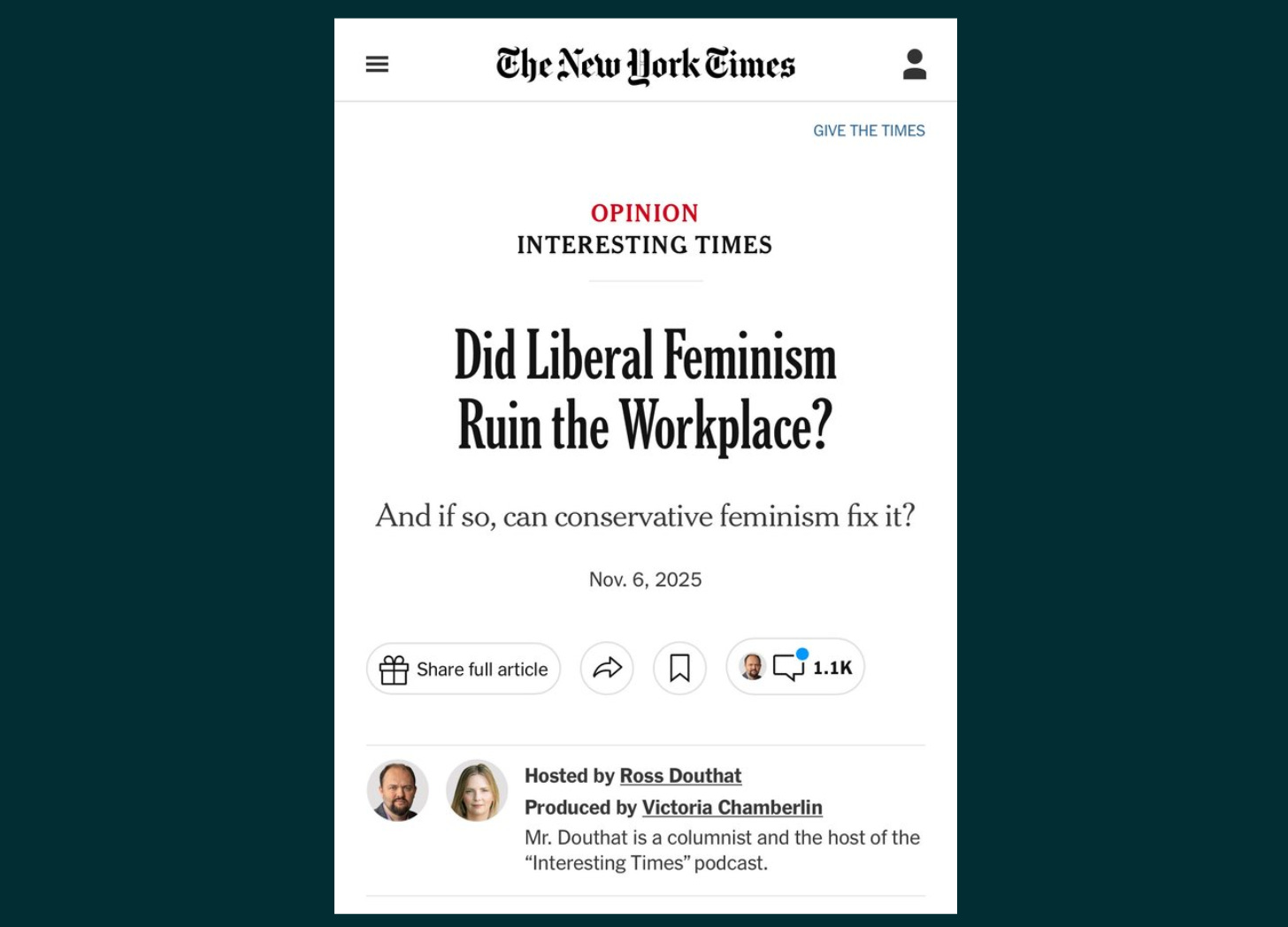
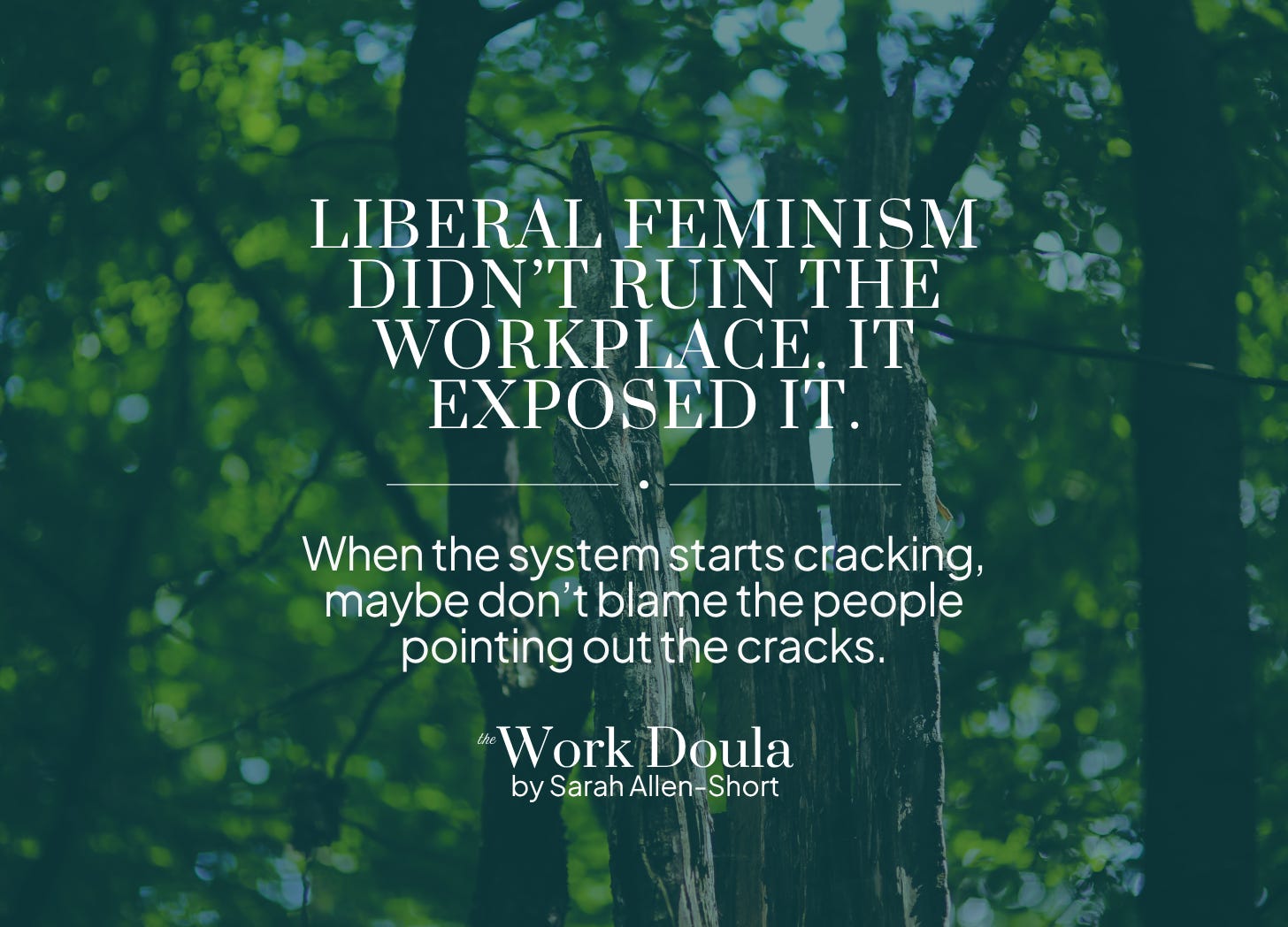
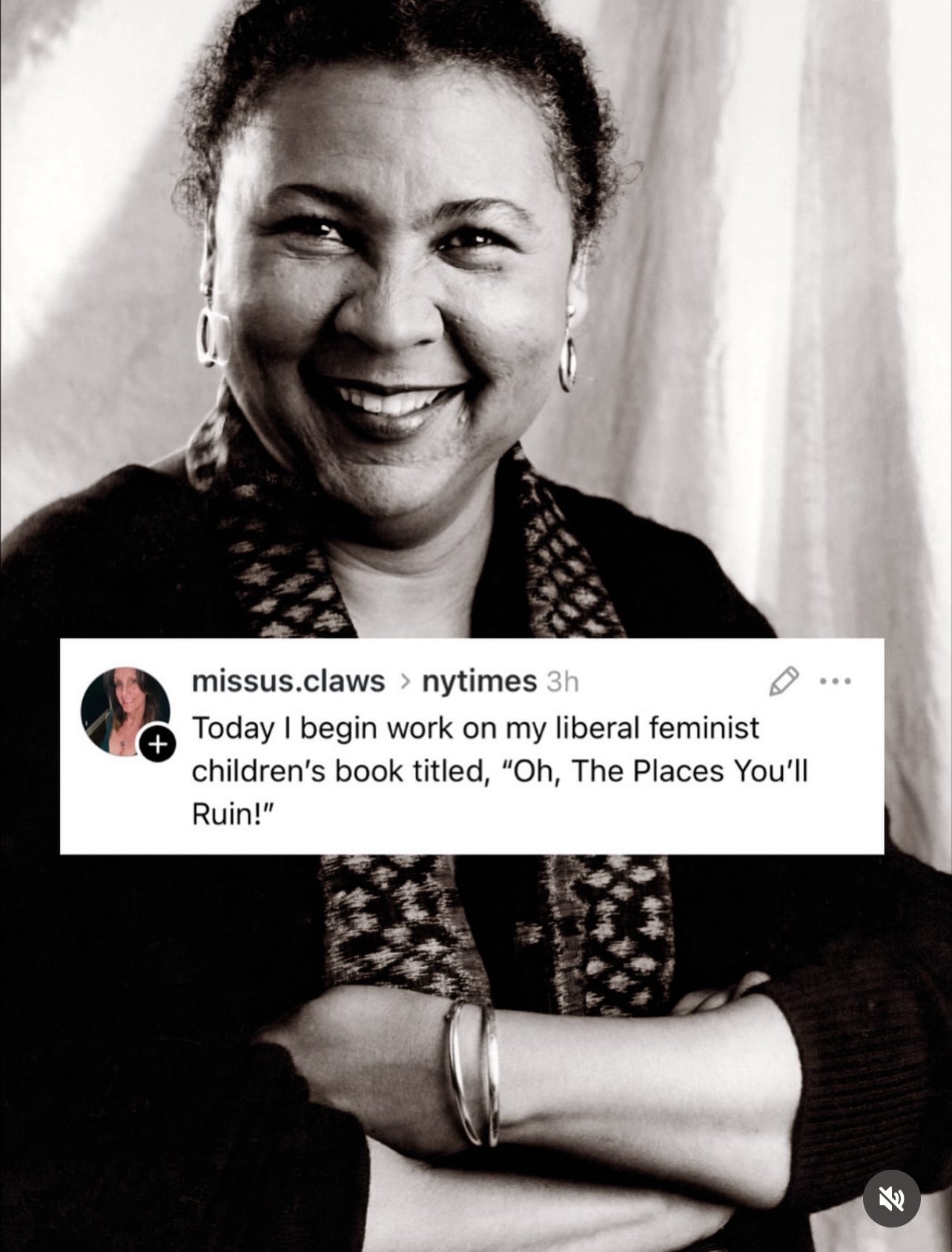
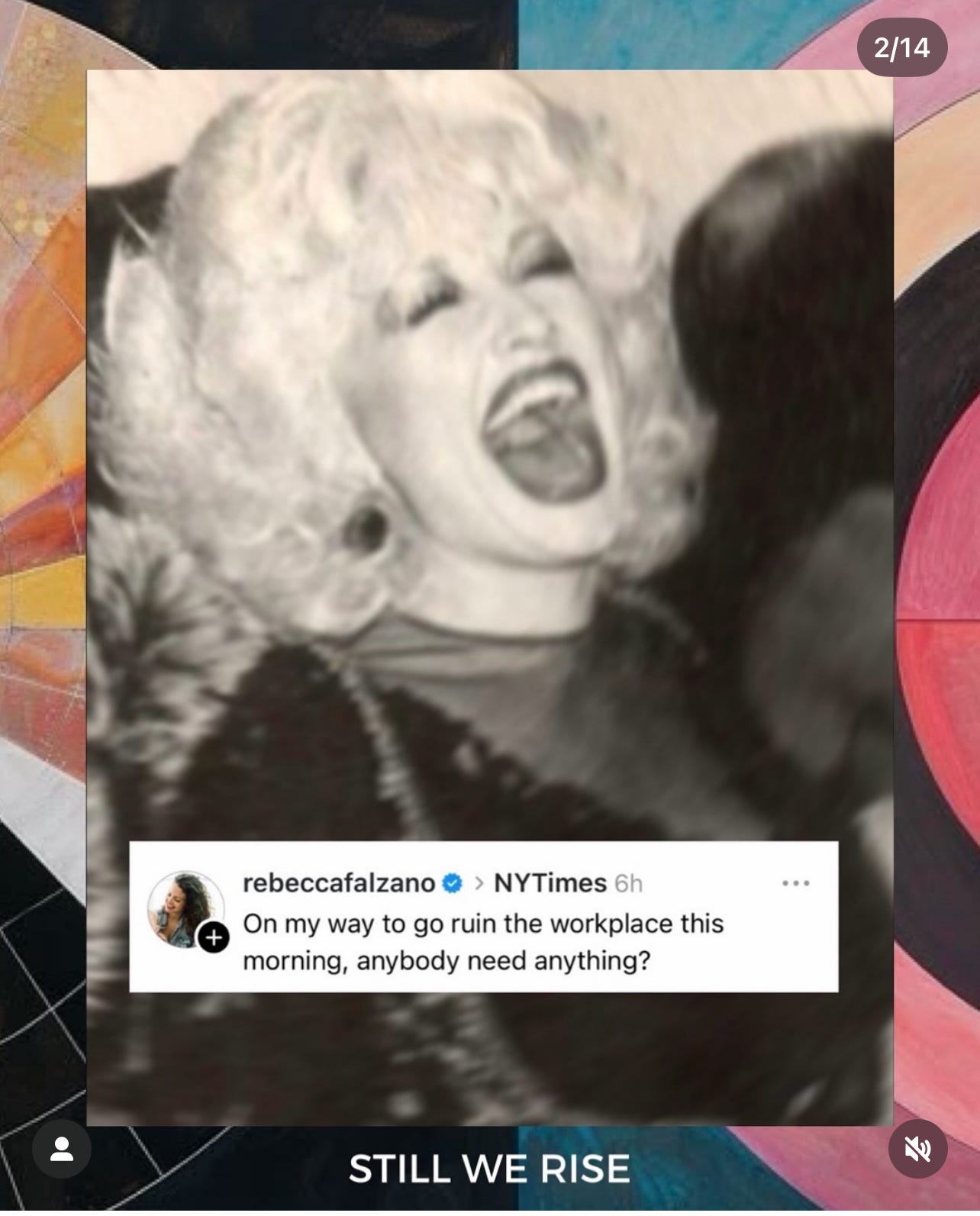
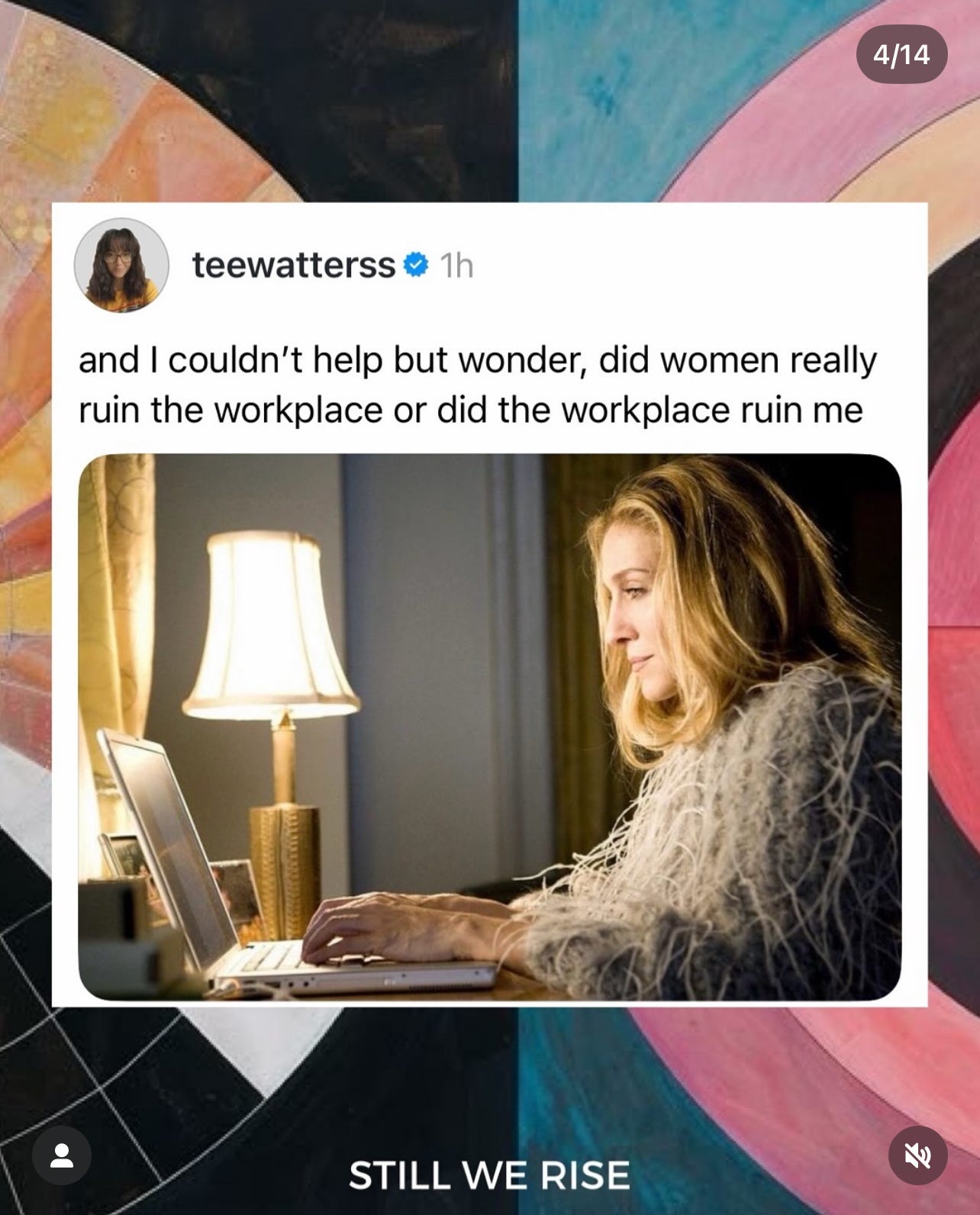
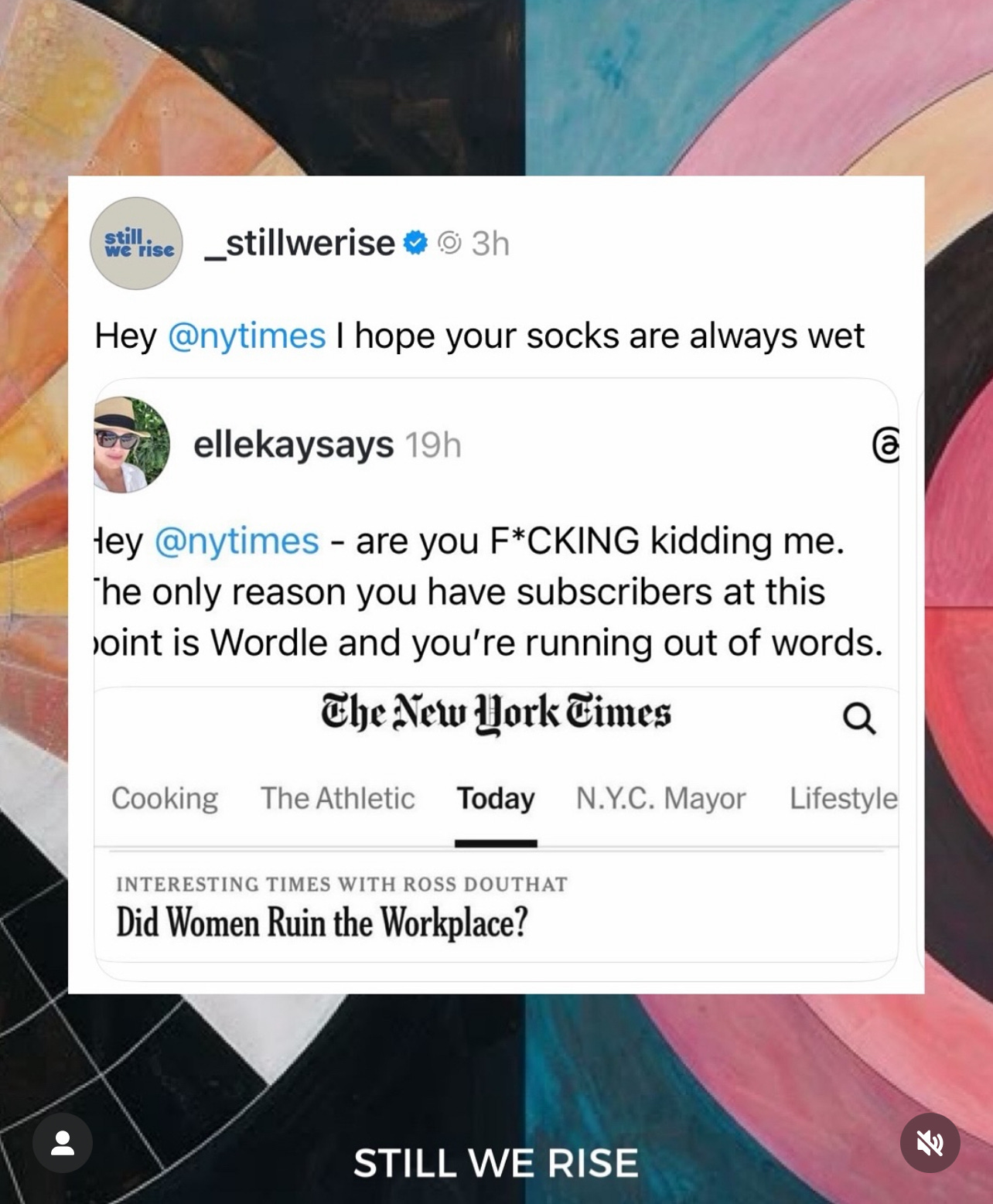
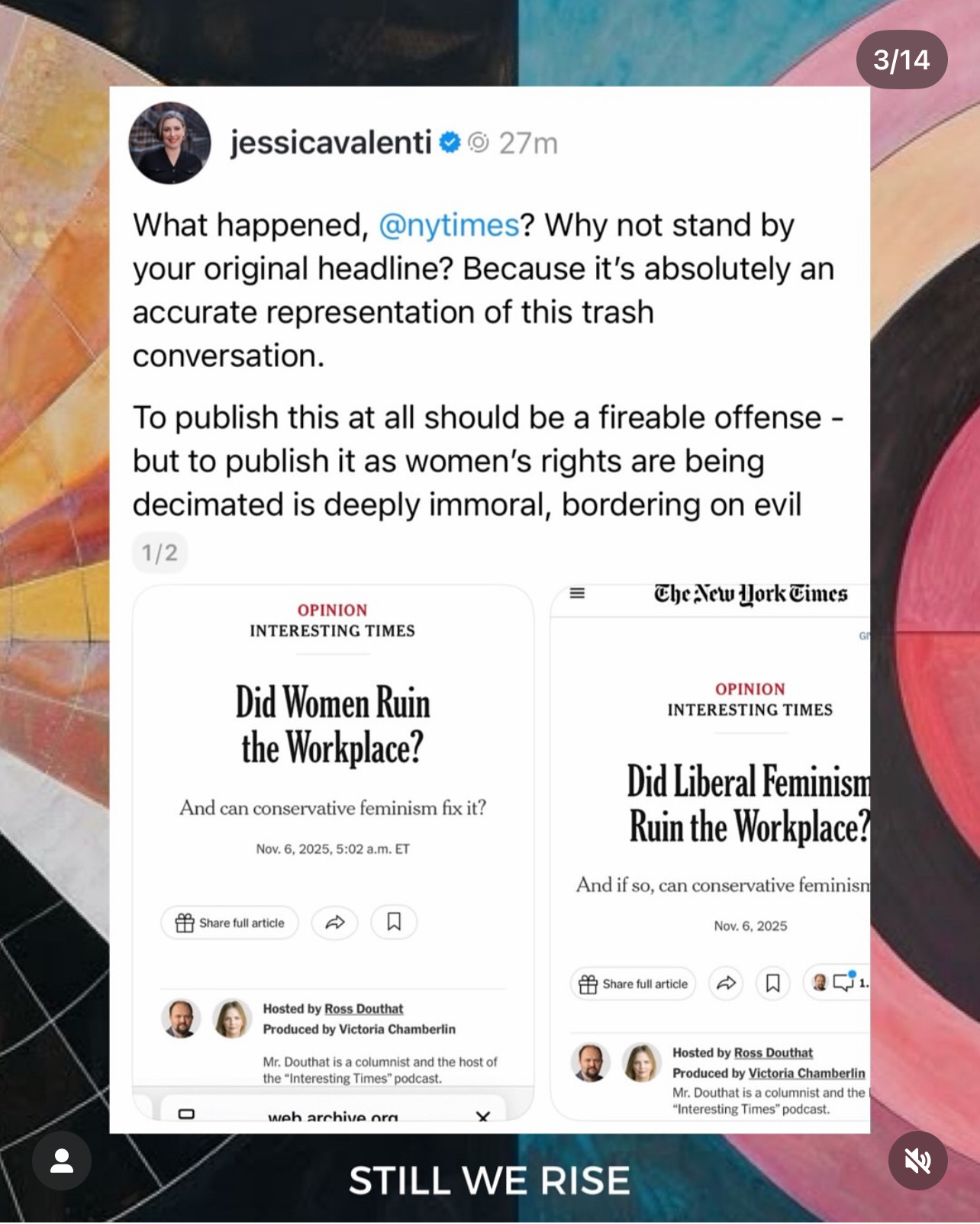
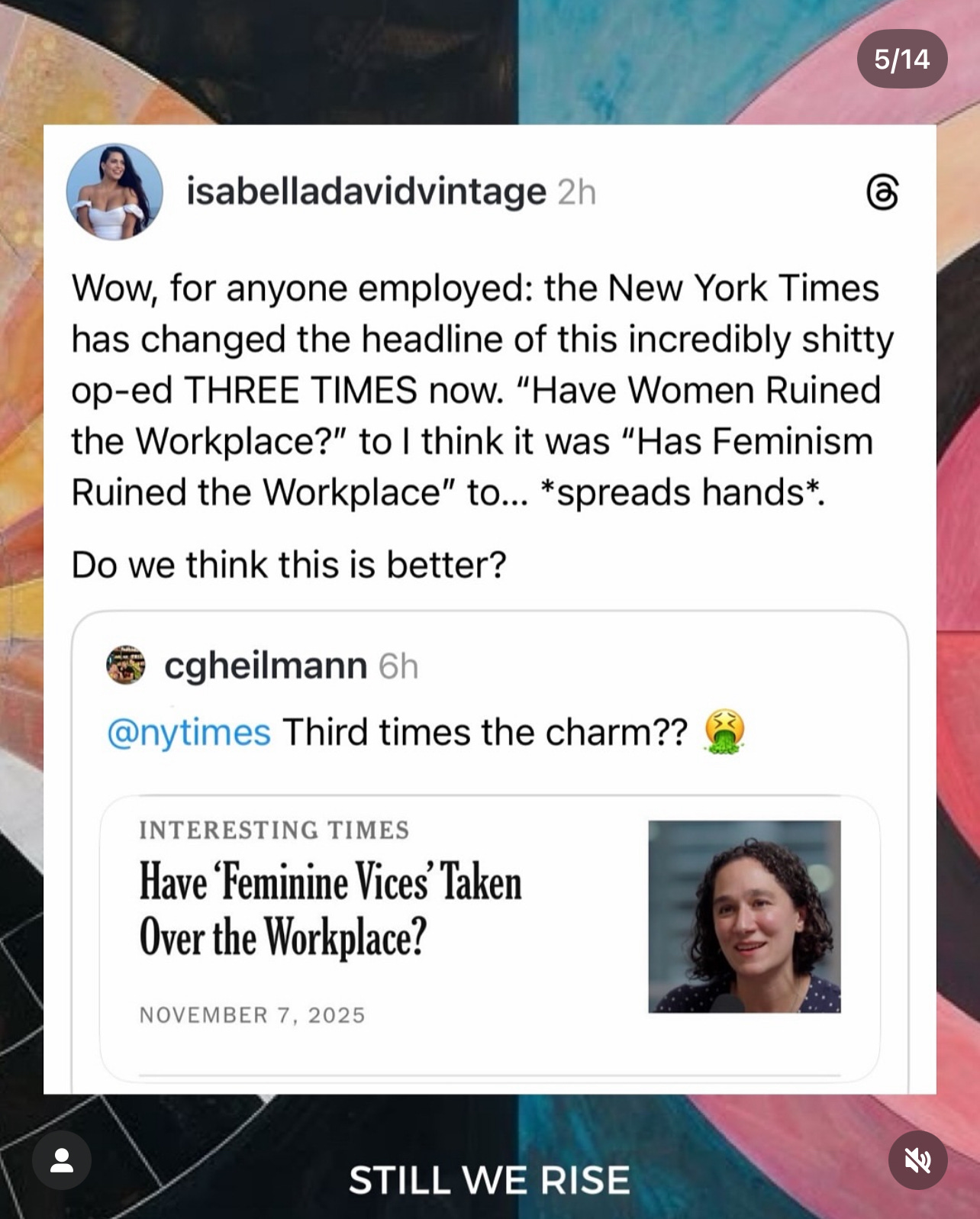
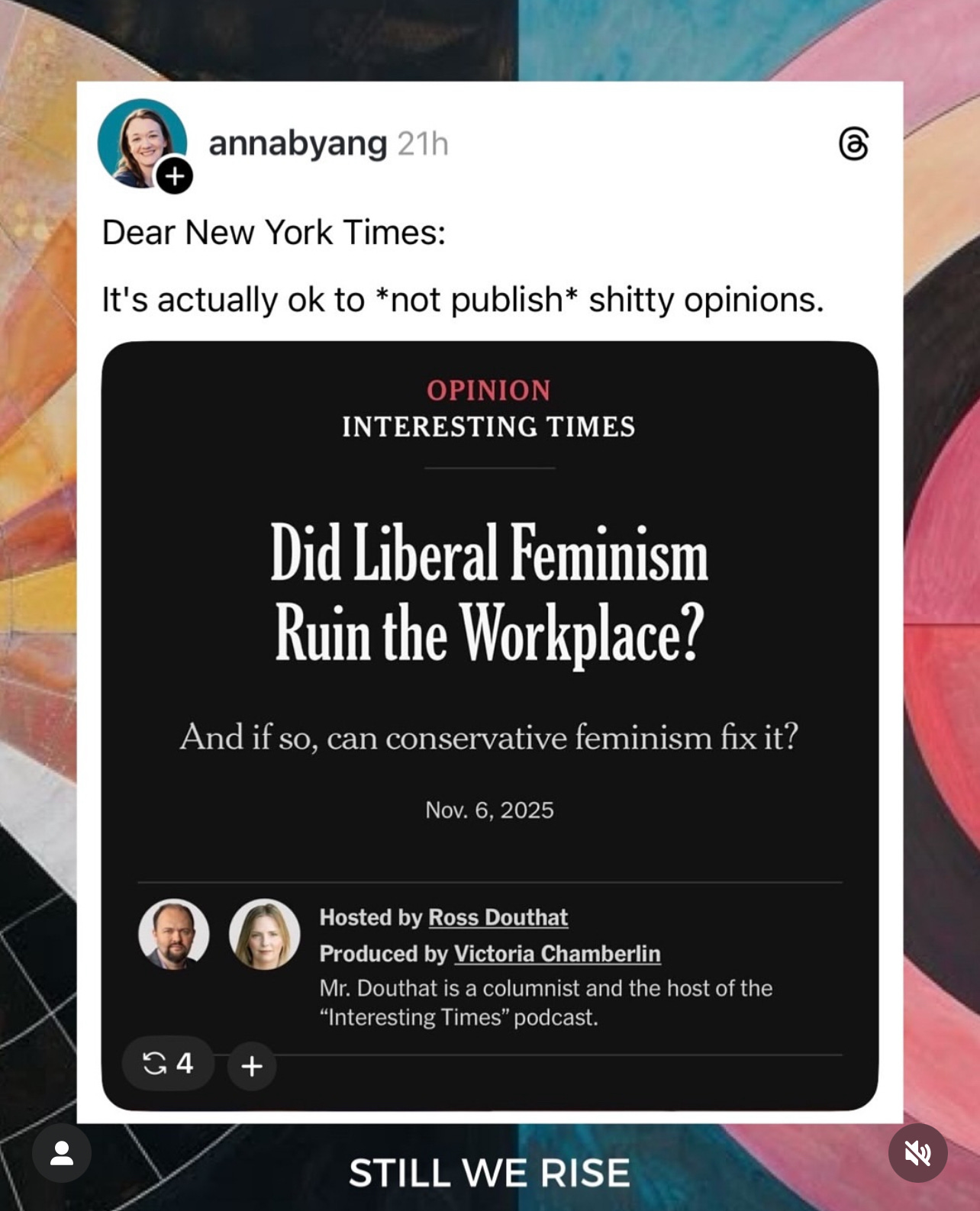
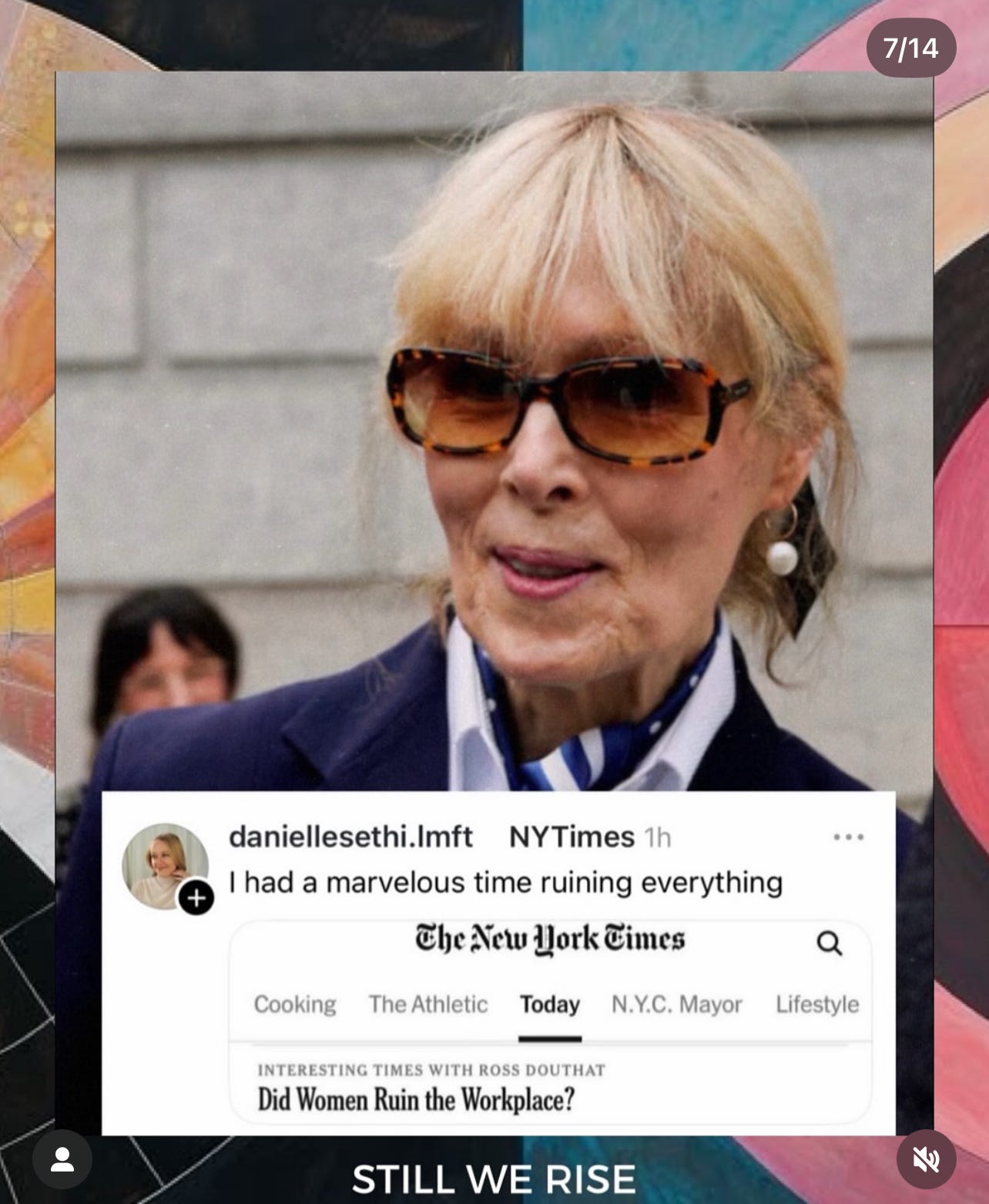
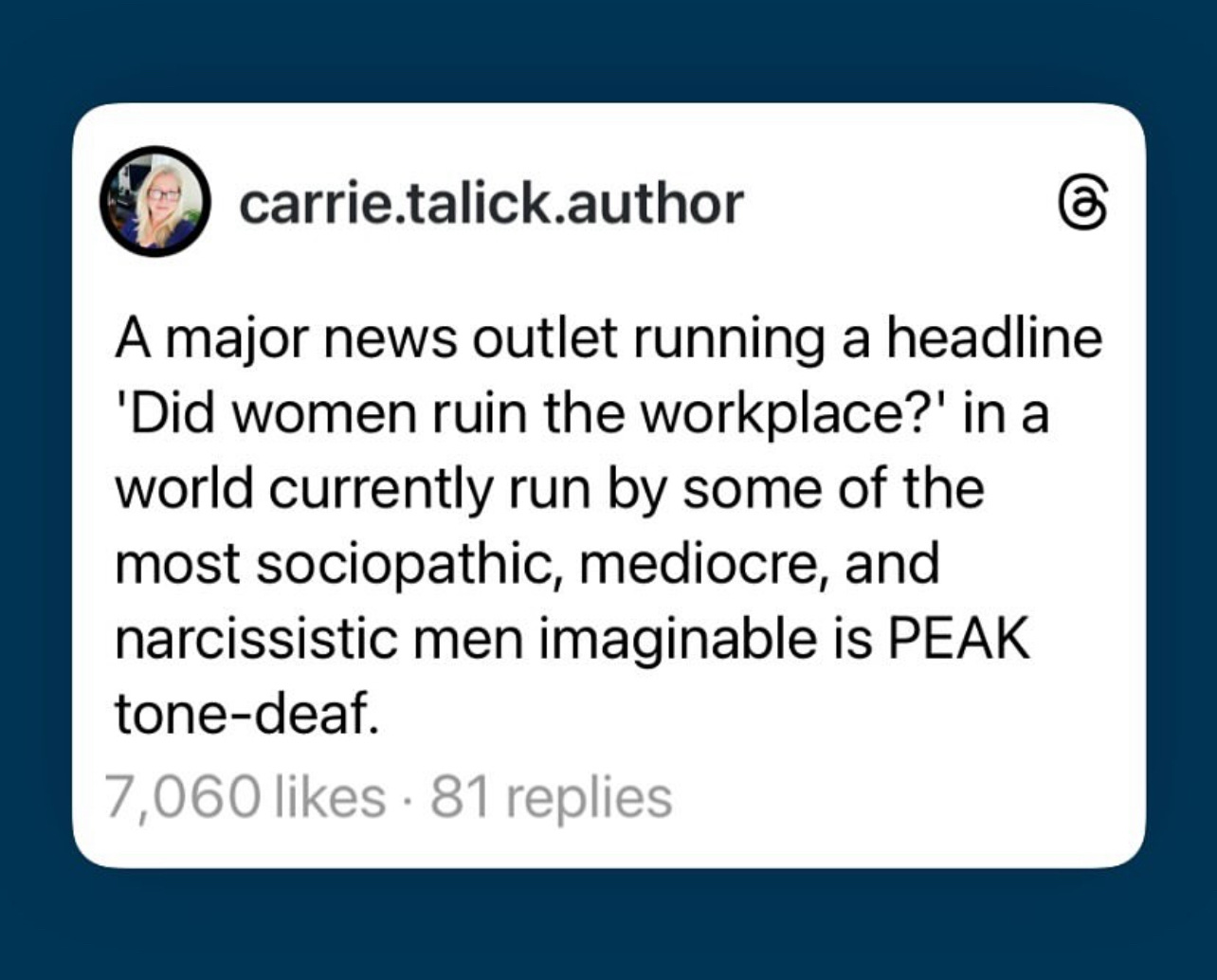
Loved this! It’s the first take I’ve read on that article, and I feel like I don’t need anymore. Nailed it! Though I kind of want to write about it too and quote you a bunch 😊
Sarah, great post. There is so much work to do for women to achieve equity in the workplace. I feel like we've regressed dramatically. All I see is manels, funding for women founders has declined from 9% in 2021 to less than 2%. It's frightening. I have been involved in many women's communities and keep advocating that for change to happen, four things must happen
1. Mentorship
2. Sponsorship
3. Hire women
4. Invest in women
Actionable steps to right the ship which is way off course IMHO.